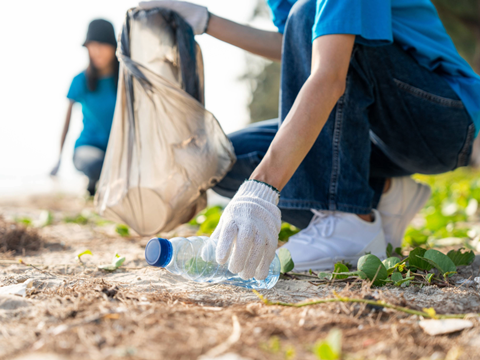
By partnering with Plastic Bank, EZVIZ aims to remove 20,000 kilograms of plastic waste from the environment and support waste collectors across Southeast Asia, Latin America, and Africa.
Plastic Bank’s circular economy model encourages local waste collectors to retrieve plastic waste from the environment, then exchange it for income and social benefits, including education and healthcare.
The recovered waste is converted into Social Plastic, or post-consumer recycled plastic feedstock. This is intended to replace virgin plastic in products and packaging, negate the need for new plastic production, and encourage the implementation of a circular economy.
This year, EZVIZ plans to fund the removal of 20,000 kilograms of plastic waste from the environment, which it equates to one million plastic bottles. The move is set to serve waste collectors in 29 communities across Southeast Asia, Latin America, and Africa while helping tackle the effects of plastic pollution.
In turn, the collaboration is set to expand upon EZVIZ’s Green Initiative and ‘Together for Change, Bottle by Bottle’ campaign.
“With EZVIZ, we’re proving that every action, no matter how small, can ripple outward to protect the environment and uplift communities,” said David Katz, CEO and founder at Plastic Bank. “Our collective action is enabling a future where the people and the planet prosper together.”
“Our approach is holistic: creating products and partnerships that make a real difference,” said Sophie Zhang, global brand director at EZVIZ. “We believe in plastic reduction that’s people-centered, tech-enabled, and globally scaled.”
EZVIZ claims that its implementation of recycled material across its robot vacuum portfolio helped avoid 22.3 tons of plastic waste last year, while its battery cameras are also reported to be packaged in 100% recycled materials.
Additionally, it claims to have reduced 1.573 tons of paper by streamlining its packaging formats and replacing printed labels with laser etching, and is now said to eliminate over one million bubble wrap bags every month by introducing paper-based and recycled materials.
In another partnership with Plastic Bank, drinks company ROAR Organic sought to remove one bottle from the environment for every bottle sold and prevent plastic waste from entering the ocean. It claims to have kept 4.8 million bottles out of the ocean so far, extracted 96,000 kg of plastic, and positively impacted over 33 communities.
Since then, Coca-Cola Europacific Partners and Samoa and Tokelau Association of Recyclers’ collection and segregation initiative claims to have retrieved over 80,000 used PET bottles and aluminium cans in June 2025. The companies hope that retrieving bottles and cans will keep recyclable waste out of the Tafaigata Landfill.
In less optimistic news, an investigation conducted by Greenpeace previously accused members of the Alliance to End Plastic Waste of producing over 1,000 times more plastic than they have cleaned up in its first five years. However, the Alliance countered that there is ‘no factual basis’ for the greenwashing allegations it faces.
If you liked this story, you might also enjoy:
The ultimate guide to the Packaging and Packaging Waste Regulation in 2025
How are the top brands progressing on packaging sustainability?
Everything you need to know about global packaging sustainability regulation in 2025
The key to increasing the use of reusable packaging in supermarkets














No comments yet